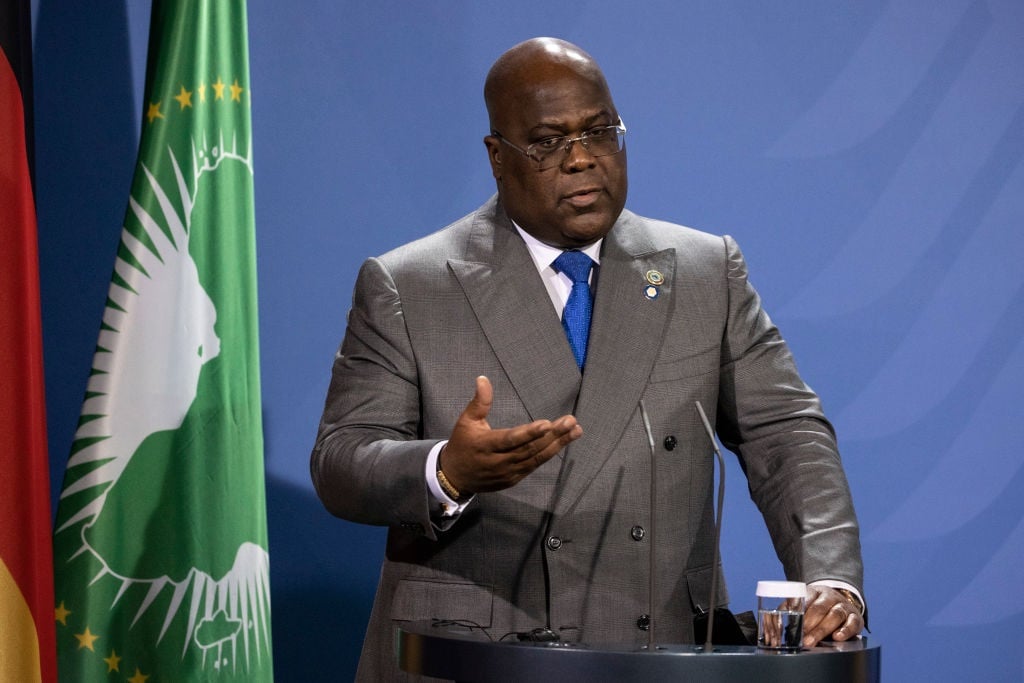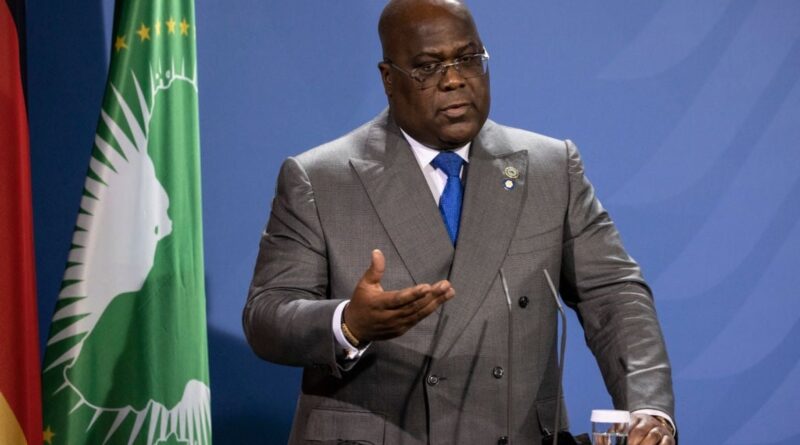News24 | Former journalist Joelle Bile pulls out of DRC presidential race

Former journalist Joelle Bile has withdrawn from the presidential race in the Democratic Republic of the Congo (DRC) in support of incumbent Felix Tshisekedi.
- Only one female presidential candidate remains in the DRC after the withdrawal of former journalist Joelle Bile.
- The US said the election campaign season was electrifying, with jam-packed rallies at stadiums.
- The DRC government has been challenged to run a free and fair election.
Former journalist Joelle Bile has withdrawn from the presidential race in the Democratic Republic of the Congo (DRC) in support of incumbent Felix Tshisekedi.
In a statement on Friday, Bile, 51, said she was doing it for the good of the country.
“After three weeks of electoral campaigning, during which I shared with our people the urgent need for a republic based on values, I am making the decision today to withdraw from the race and to support candidate number 20, Félix Tshisekedi,” she added.
Her withdrawal leaves only one woman in the presidential race, Marie-José Ifoku, the former governor of Tshuapa Province.
On Thursday, another candidate, Patrice Majondo Mwamba withdrew in favour of Tshisekedi.
Withdrawals started a few weeks into the campaign season when five opposition parties met in Pretoria to come up with a grand coalition.
READ | IMF gives R2.8bn to DRC government days before elections
However, the talks fell apart when Moise Katumbi and 2018 runner-up Martin Fayulu emerged as likely leaders.
Three candidates, Seth Kikuni, Franck Diongo Shamba, and Augustin Matata Ponyo, withdrew from the race to endorse Katumbi.
Katumbi and Fayulu are now rivals in the race.
When Tshisekedi came into power, he and another politician, Vital Kamerhe, broke away from Fayulu to form their own pact.
America’s best wishes
The US said it commended the people of the DRC for their active participation in the country’s fourth electoral cycle, which began on 20 November.
The last campaign date before the elections is 18 December, two days ahead of voting.
In one of Africa’s most populous and biggest countries, presidential candidates flew from state to state, canvassing for votes in different time zones.
It is one election season in Africa that kept local airports busy with private jets, some hired from as far as South Africa and nearby Angola, on the runway, ready for their next stops.
The US Embassy in Kinshasa said it was an electrifying period that saw “people of this country fill stadiums and town squares to connect with candidates and make their voices heard”.
There were pockets of isolated skirmishes in some parts of the country, but not enough to compromise the election.
As such, the US Embassy said it was all up to the government to make sure the election would go down as one of the country’s successes.
It added in a statement:
We rely on the government of the DRC to ensure that all Congolese can participate in elections safely and meaningfully, regardless of their political allegiances and without fear of violence and reprisals.
At this critical juncture in the DRC’s history, it is incumbent on Congolese institutions to carry out their constitutional duties with the independence and integrity the Congolese people demanded.
That is why the US also rallied opposition parties to play an active role in ensuring peace.
“We invite all candidates and all parties to promote peaceful and credible elections by avoiding statements likely to provoke escalation and violence by promising to resolve disputes in accordance with the law, and above all by respecting the will of the Congolese people,” the embassy said.
Meanwhile, the SADC Election Observer Mission will be launching its programme tomorrow before deploying observers to 18 of the 26 provinces in the country.
Its leader, former Zambian vice president Enock Kavindele, has also arrived in the country.
The News24 Africa Desk is supported by the Hanns Seidel Foundation. The stories produced through the Africa Desk and the opinions and statements that may be contained herein do not reflect those of the Hanns Seidel Foundation.

